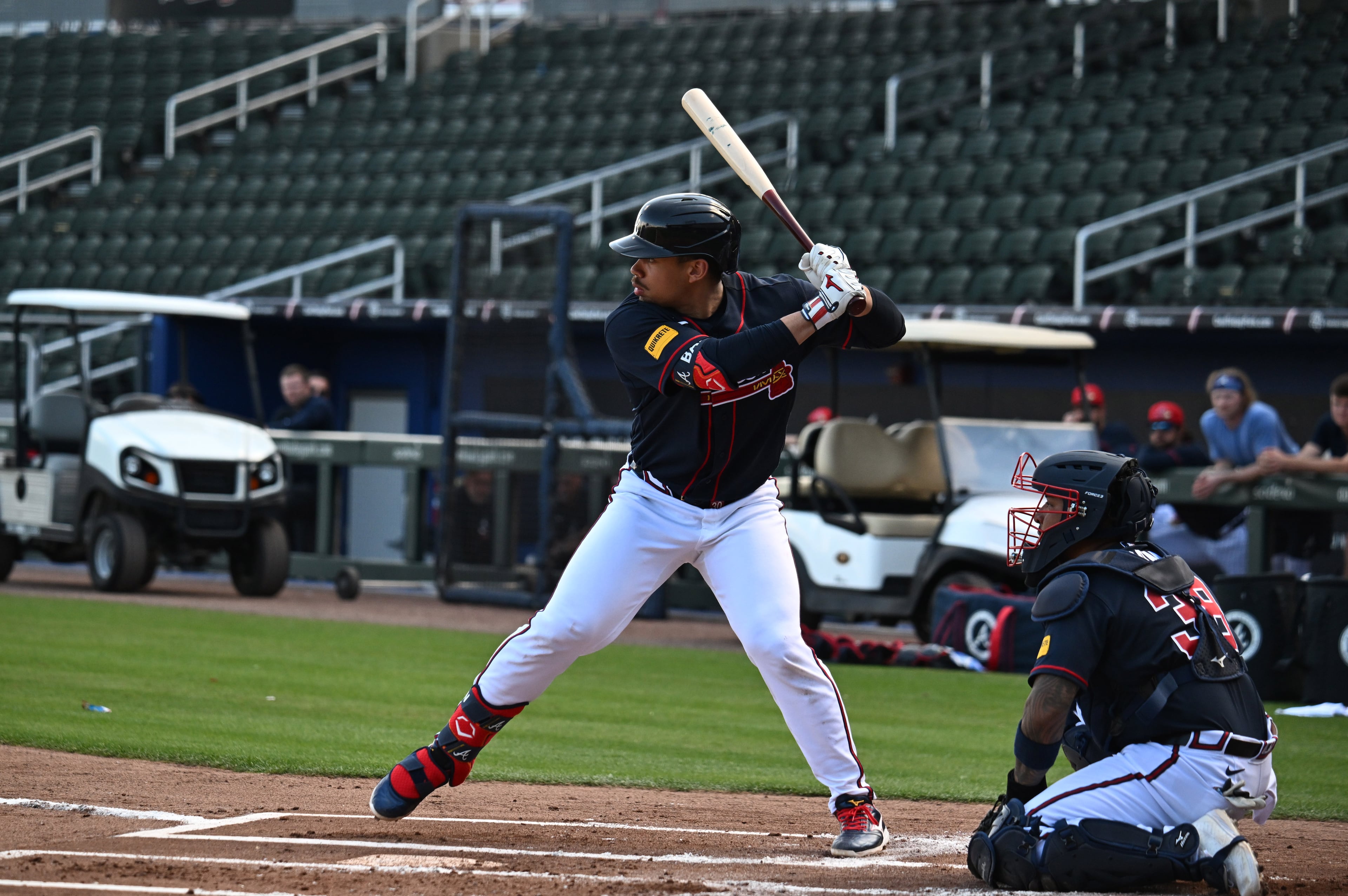The next Braves’ GM should be young and brainy
The Braves fired their general manager 51 weeks after finishing a regular season with 96 wins, and the weird part was that it didn’t seem weird. The misdoings of September — the Braves entered Monday night’s game 4-14 on the month — have been so egregious as to make us believe there was more wrong than a team not hitting.
As Braves president John Schuerholz put it, this organization had lost “the Braves’ Way.” Thus was Frank Wren, who as of last week had built the National League’s winningest team since 2010, shoved aside with the sort of haste that was sometimes Wren’s Way. The Braves were eliminated Sunday from postseason consideration; by 11 a.m. Monday, the GM was gone.
Speaking at a midday news conference, Schuerholz called the justification for the move “cumulative,” saying: “We began to examine things in our farm (system), the scouting department and the major-league club.”
Well, now. What Schuerholz seemed to be saying was that there was more to this firing than B.J. Upton or Dan Uggla or even Wren’s penchant for micromanaging. The old-line Braves — Schuerholz and Bobby Cox — didn’t like what was happening within the franchise, and manager Fredi Gonzalez, whom Cox loves, was given a pass. Wren, who hired Gonzalez, got the gate.
It became apparent Monday that the only thing keeping Wren in place was the won-lost record — it’s hard for any team to justify firing a GM whose team is in first place, which these Braves were as of July 20 — and when that went south, there was nothing. And now there’s a void, to be filled on an interim basis by John Hart, the former Cleveland and Texas GM who joined the Braves as a consultant.
It was unclear after Monday’s presser whether Hart wants the job on a continuing basis — he didn’t say yes but didn’t say no — but, at 66, he’s not the long-term solution. He would, however, be great for a year, which would be time enough to mentor John Coppolella.
Coppolella, known universally as “Coppy,” worked seven years in the Yankees’ organization and has been here eight. He’s smart enough to have become a favorite of the sabermetric set but personable enough to have served as the Braves’ director of scouting. That’s no small feat: As readers of “Moneyball” know, the expanse between advanced analytics and eyeball reconnaissance has long been vast.
Bruce Manno, Wren’s longtime deputy, likewise was canned Monday. As Hart said of Coppolella: “He’s the No. 2 guy now, the right-hand guy. He’s very bright and articulate. He’s not going to let me miss anything.”
Coppolella has a stirring story in the New Age-y baseball way: He was cut from his high school team but bugged enough people to keep getting internships. (His first was with the Lake Elsinore Storm.) He took a job just out of Notre Dame — he graduated magna cum laude in business — but left to work for the Yankees at one-tenth the salary. He started with the Braves in 2006 as director of baseball administration, then became the pro scouting director, then an assistant GM.
If this were my team, I’d make Coppolella the permanent GM tomorrow. But it’s not, and I can imagine there’d be some reluctance to make a No. 1 of a 36-year-old who hasn’t been a No. 1. The way of baseball, however, is that the tried and true are making way for the young and brainy.
Theo Epstein was 28 when he became Boston’s general manager; Jon Daniels was likewise 28 when he took over at Texas. Brian Cashman was 31 when tapped by the Yankees; John Mozeliak took the head chair in St. Louis at 38. Together they’ve presided over seven World Series winners and five runners-up. Smart is smart at any age.
Analytics alone wouldn’t have kept the Braves from signing Bossman Jr., but they sure as heck would have kept them from re-upping Chris Johnson, whose WAR rating this season is, according to Baseball Reference, minus-1.5. Wren did some things well — he rarely lost a trade — but he was more scout than sabermetrician. Coppolella could bridge that gap.
Said Hart: “Organizations are remiss if they don’t use data and analytics.” Then, speaking of Coppolella: “Certainly ‘Coppy’ is going to be someone we’re going to consider. He’s a quality No. 2; he’s deserving of a chance.”
(For his part, Coppolella would say only: “It’s not about me; it’s about the Braves.”)
The belief here is that Coppolella would take the Braves a place they need to go. The belief is that he’d benefit from a year as Hart’s aide-de-camp and then take the job and run with it. Smart is smart, and the Braves need to get smarter.



